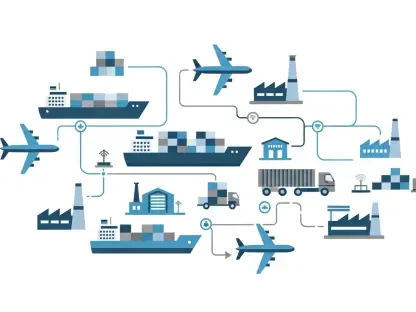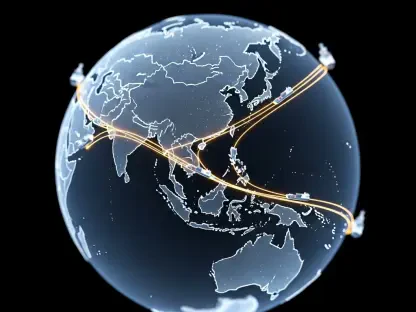In an era where global trade dynamics are shifting at an unprecedented pace, Southeast Asia has emerged as a powerhouse of economic activity, driven by rapid industrialization and innovative manufacturing. Emirates SkyCargo, the freight division of the Dubai-based airline Emirates, is playing a pivotal role in this transformation by significantly expanding its operations across the region. With the recent introduction of a new freighter service to Bangkok’s Suvarnabhumi Airport, the carrier is tapping into the surging demand for air cargo services. This move not only strengthens its foothold in a critical market but also highlights the strategic importance of Southeast Asia in global logistics. As trade and manufacturing sectors flourish, the airline’s efforts to enhance connectivity and capacity are set to facilitate the seamless movement of goods, positioning it as a key player in the region’s economic growth.
Expanding Regional Footprints
Emirates SkyCargo’s latest expansion into Bangkok marks a significant milestone in its strategy to bolster trade links in Southeast Asia. This new route adds to an already robust network, bringing the total number of freighter destinations in East and Southeast Asia to 10, which accounts for a substantial portion of its global operations spanning 43 destinations. The focus on Bangkok is driven by Thailand’s growing status as a hub for innovative industries, including next-generation automotive, smart electronics, and biotechnology. By establishing this service, the airline aims to transport a wide array of goods, from high-tech products to garments and perishables like stone fruits. This diversification reflects the varied economic landscape of the region and underscores the carrier’s commitment to meeting the specific needs of local markets through tailored logistics solutions.
Beyond Bangkok, Emirates SkyCargo has also ramped up capacity in other key markets to address the escalating demand for air cargo. In Vietnam, for instance, the airline now operates four weekly flights to Hanoi, with most connecting directly to Dubai and one routing through Taipei. Similarly, services to Guangzhou in China have been increased to six weekly flights, catering to the high volume of consumer tech, electrical goods, and e-commerce shipments. These enhancements are not merely responses to current demand but part of a broader vision to ensure stability during peak periods. By deploying additional freighter capacity when needed, the airline is proactively preparing for fluctuations in trade volumes, thereby reinforcing its reliability as a logistics partner in a highly competitive environment.
Capitalizing on Economic Shifts
The rapid economic growth and evolving industrial landscape of Southeast Asia are central to Emirates SkyCargo’s strategic focus. Thailand, in particular, has positioned itself as a global leader in cutting-edge sectors, supported by substantial government investment in technology and infrastructure. This progress is complemented by a broader regional trend where manufacturing bases are shifting away from traditional hubs like China to countries such as Thailand and Vietnam, influenced by geopolitical factors and international trade policies. As a result, the region has become a critical node in global supply chains, with air cargo playing an indispensable role in maintaining the flow of goods. Emirates SkyCargo’s expanded operations are designed to support this transformation by providing efficient and reliable transport solutions for industries driving the region’s economic ascent.
Industry leaders recognize Southeast Asia as the new heartbeat of global trade, a perspective echoed by senior executives at Emirates SkyCargo. The region’s modern manufacturing capabilities, advancing digital economies, and robust logistics infrastructure create a fertile ground for air cargo growth. To align with these developments, the airline has outlined ambitious plans to further expand its network and capacity through 2026 and beyond. This forward-looking approach is evident in the strategic addition of flight frequencies and the deployment of resources to high-demand markets. By anticipating future needs and investing in scalable solutions, Emirates SkyCargo is not just reacting to current trends but actively shaping the logistics landscape to support sustained economic progress across the region.
Navigating Future Trade Horizons
Reflecting on the strides made, Emirates SkyCargo’s commitment to Southeast Asia is evident in its strategic additions like the Bangkok freighter service and increased capacities in Vietnam and China. These efforts showcase a deep understanding of the region’s burgeoning trade opportunities, fueled by innovation and digital advancements. Thailand and Vietnam, in particular, stand out as frontrunners in this economic evolution, and the airline’s focus on these markets highlights its role in facilitating global trade. Moving forward, stakeholders can anticipate further enhancements in flight networks and tailored logistics solutions to address emerging demands. Exploring partnerships with local industries and investing in technology to streamline cargo operations could be the next steps to ensure seamless connectivity. As Southeast Asia continues to redefine global trade dynamics, aligning strategies with regional growth trends will remain crucial for sustaining momentum and delivering value in an ever-evolving market.









